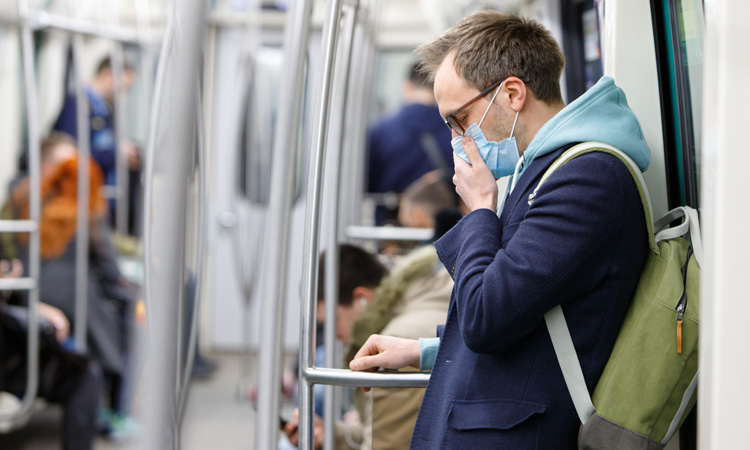DfT provides coronavirus guidance for staff in UK transport sector
- Like
- Digg
- Del
- Tumblr
- VKontakte
- Buffer
- Love This
- Odnoklassniki
- Meneame
- Blogger
- Amazon
- Yahoo Mail
- Gmail
- AOL
- Newsvine
- HackerNews
- Evernote
- MySpace
- Mail.ru
- Viadeo
- Line
- Comments
- Yummly
- SMS
- Viber
- Telegram
- Subscribe
- Skype
- Facebook Messenger
- Kakao
- LiveJournal
- Yammer
- Edgar
- Fintel
- Mix
- Instapaper
- Copy Link
Posted: 3 March 2020 | Sam Mehmet (Intelligent Transport)
In light of the recent global outbreak of coronavirus, the Department for Transport has offered advice for staff in the transport sector to best protect themselves and their passengers.


Based on information from Public Health England, the Department for Transport has released guidance that aims to protect the UK transport sector from risks posed from coronavirus (COVID-19):
Facemasks
Staff are not recommended to wear respiratory masks. They do not provide protection from respiratory viruses. Respiratory masks are only recommended to be worn by symptomatic passengers to reduce the risk of transmitting the infection to other people.
Hand hygiene standards
If staff are concerned that they may be exposed to risk, they should wash their hands regularly. Washing with water and soap is preferable to wipes and gels as it removes any potential infection directly. Wipes and gels are good alternatives if that’s all you have available.
Handling baggage, post or freight
Staff should continue to follow existing risk assessments and safe systems of work. There is no perceived increase in risk for handling baggage, post or freight from specified countries.
If a passenger becomes unwell at a transport hub
Where possible, staff should ask if they have recently returned from one (or passed through) any of the areas listed in the coronavirus case definition in the last 14 days. If they have, where possible, staff should remove themselves to be at least two metres distance from the passenger and call for medical assistance, informing the medical staff that they have been to a specified country in the last 14 days.
If they have not been to a specified area in the last 14 days, then normal practice should continue.
Cleaning standards
Coronavirus symptoms are similar to a flu-like illness and include cough, fever, or shortness of breath. Once symptomatic, all surfaces that the passenger has come into contact with must be cleaned including:
- All surfaces and objects which are visibly contaminated with body fluids
- All potentially contaminated high-contact areas such as toilets, door handles, telephones
- Clothing and linen used by the passenger should be set aside pending assessment of the passenger by a healthcare professional.
Public areas where a symptomatic passenger has passed through and spent minimal time in (such as corridors) but which are not visibly contaminated with body fluids do not need to be specially cleaned and disinfected.
If a passenger becomes symptomatic on-board a vessel, train or aircraft
Cooperate with the emergency medical service or public health officials at the relevant port or airport, as far as possible.
Keep your transport company operations centre informed of any requests by the public health officials such as requests for passenger information (except where provided by the passengers themselves) and crew details.
If the emergency medical services or public health officials are concerned that the ill person may have COVID-19, they are likely to request specific information to assist with the clinical and public health risk assessment.
Any contacts of a confirmed case need to self-isolate. In practice, for passengers who have travelled via airplane, this will include all passengers within two seats of a confirmed case. Contacts of a possible case do not need to change their daily activities.
Related topics
COVID-19, Public Transport, Staff & Skills Development, Vehicle & Passenger Safety, Workforce Inclusivity
Related cities
UK
Related organisations
Department for Transport (DfT), Public Health England








